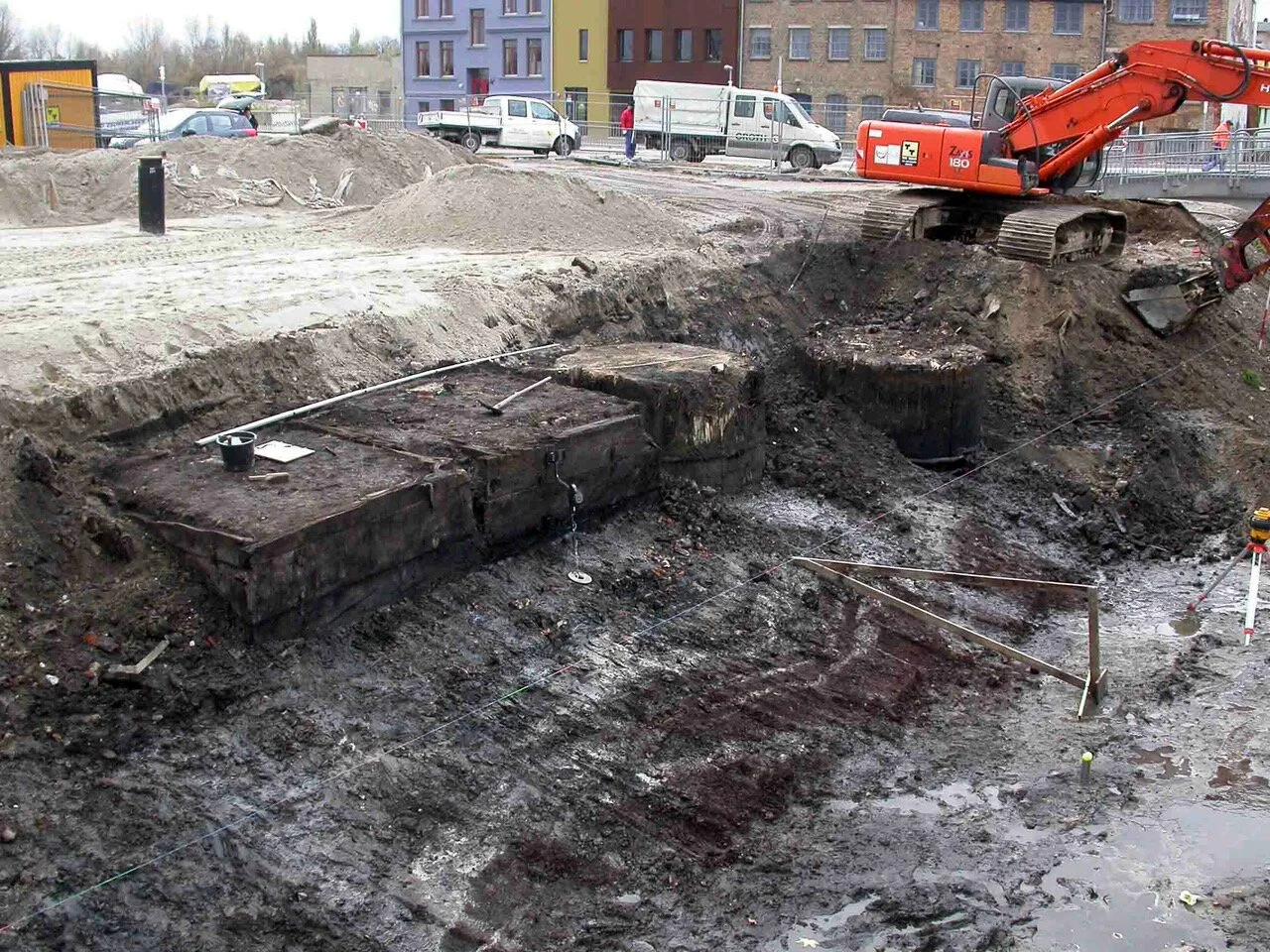Ellen Siebel-Achenbach’s badge, man on horse or donkey mounts stairs to wind mill. Original pewter badge found here.
On April 13th and 14th, we were glad to welcome Melanie Jackson to the DRAGEN Lab at St. Jerome’s University. Her artist talk on Thursday evening focused on her engagement with a series of secular medieval badges and how visually led research invites us to engage with objects of the past differently. On Friday afternoon, Melanie led a hands-on workshop, where participants were invited to re-make a medieval badge. Participants made press moulds using clay to think about the ways that drawing in the negative and incorporating a range of historical and contemporary technologies and methods can open up ideas in new ways.
We began the workshop on our cell phones, looking for an image of a badge we wanted to copy and then reversing it. Once reversed, we had to begin thinking about our images negatively, as the medieval makers would have, as we ‘drew’ them into our clay moulds. That the deepest marks made into the moulds would become the highest was more challenging for some (myself included) than for others to grasp. This alone gave participants a newfound appreciation for how skillful and practiced those crafting the three-centimetre badge moulds would have been.
Finished clay mould of Compostela pilgrim shell.
Plaster hardening inside of the clay mould.
Once our moulds were finished, we poured plaster into them and waited for the plaster to harden. We were then able to see clearly the results of handiwork. Like many of the surviving badges, some of us had bits of our badges break off at the weak points. Excitement, anticipation and — naturally — some frustration were all part of the process of making badges at the workshop. These feelings, including that of accomplishment at the end of the workshop when we saw our badges shine with the graphite we had painted over them, are certainly sentiments we share across time with the medieval makers. Though times and technologies have changed, our bodies – their physical and emotional make-ups – allow us to continue to enter into deeply humanistic research.
In the midst of a growing emphasis on digital technologies being used to capture ancient artifacts in new forms, the act of re-making badges prioritizes a different way of knowing that offers us insight not into the results of making, but the process of making. By engaging both body and imagination, we are hopeful that this kind of experiential learning makes room for different kinds of research questions of both the medieval badges and their makers to emerge.
We are very grateful to Melanie for leading this workshop and enriching our research community!
Gillian Wagenaar’s badge, man holding bag on his head while riding donkey or horse. Original pewter badge found here.
Melanie Jackson’s vulva badge made before the workshop for demonstration purposes.
Written by Hannah Gardiner. This post was originally published on the Medieval Badges blog on May 8, 2023.








